22 ancient versions of modern devices that are not easy to recognize
Categories: Culture | Design and Architecture | History | World
By Pictolic https://pictolic.com/article/22-ancient-versions-of-modern-devices-that-are-not-easy-to-recognize.htmlObjects that people now use on a daily basis often have a long history. When they appeared, they looked completely different from what we imagine. Therefore, looking at the most ordinary things produced in the old days and guessing their purpose is incredibly exciting!


One of the first electric toasters, released at the beginning of the 20th century.

Hair dryer made in the second half of the 19th century. To dry hair with a ceramic device, hot water was poured inside.

Plus Fours Routefinder wrist navigator, released in Great Britain in 1920. Cards were inserted inside and scrolled manually using two miniature handles.

This is not a spearhead or a ritual dagger, but simply a table knife made of shark teeth and wood. Such devices have been used for centuries by the natives of some Polynesian islands.

This is what the ring reinforcement in a sail looked like in the 18th and 19th centuries.
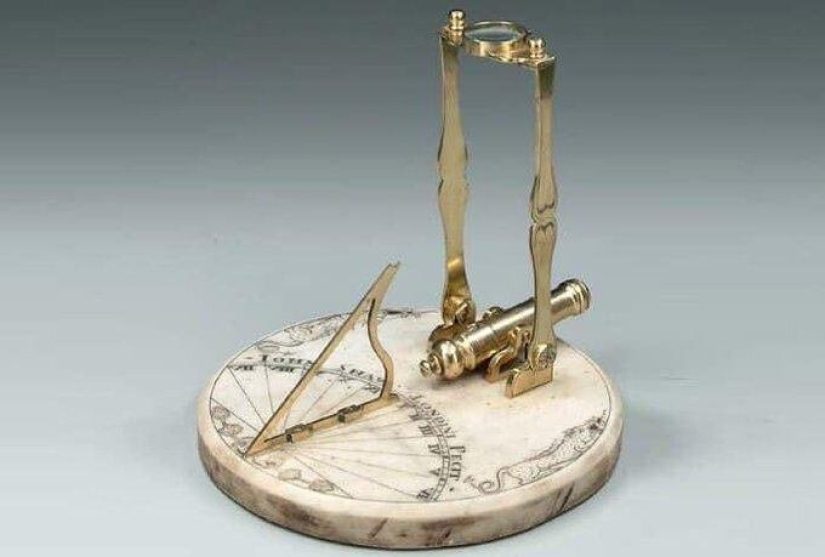
Sundial with alarm clock from the 19th century. The beam, passing through the lens, ignited the gunpowder and the cannon fired.

English wooden adding machine from the late 17th century.
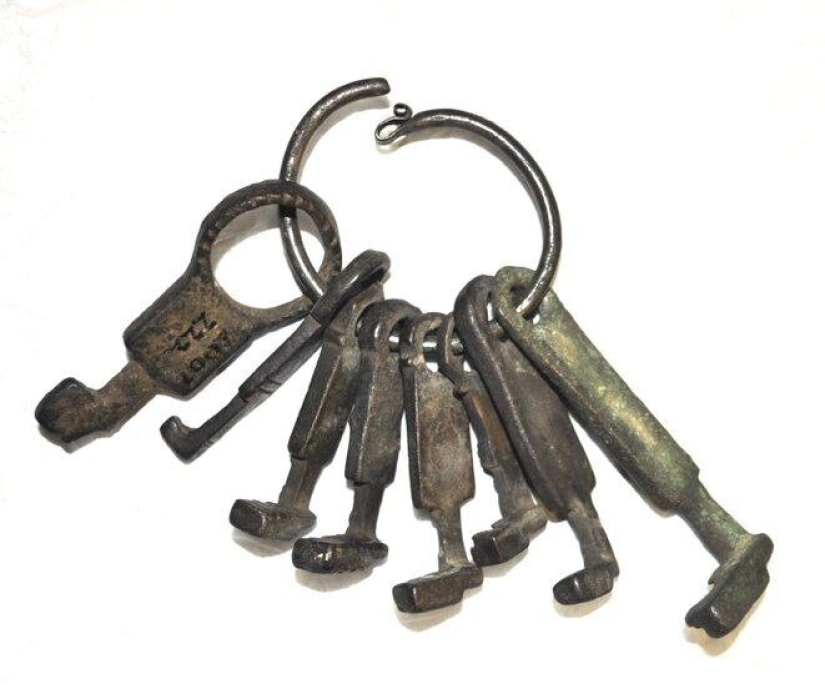
This is what a bunch of keys looked like in Ancient Rome.

2nd century BC stone toilet from China.

Ancient Roman agricultural calendar with useful tips.

The first cash register from the American company Ritty. Made in the 1890s.

Antique fire extinguishing system. When heated, the spring at the bottom breaks the flask and water pours into the fire.
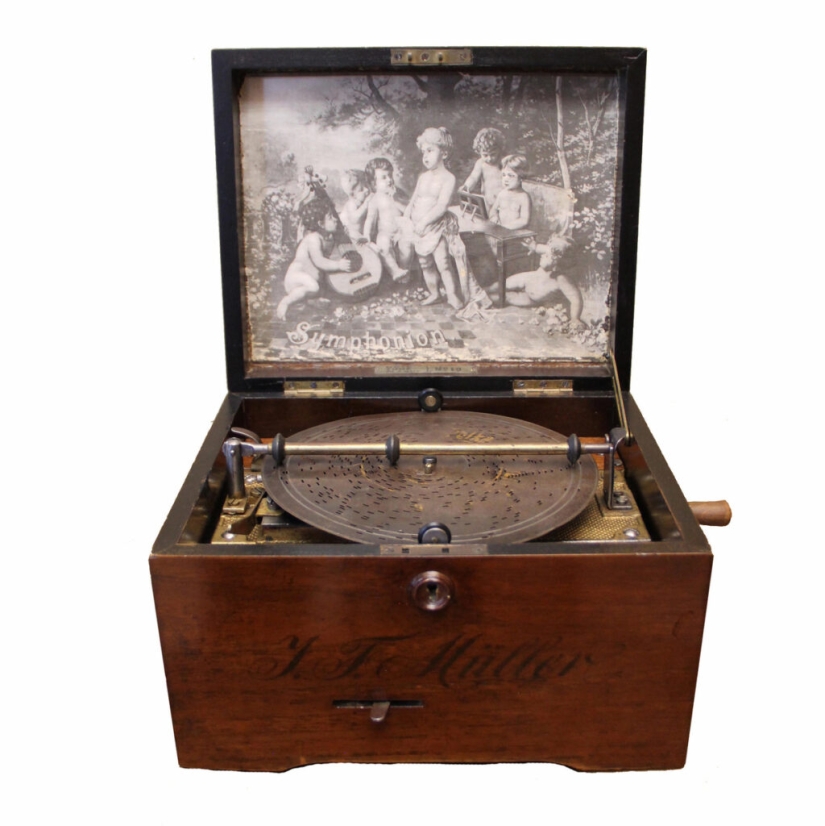
The ancestor of the gramophone is the symphonion. Instead of a plate, the device used a disk with protrusions and depressions.
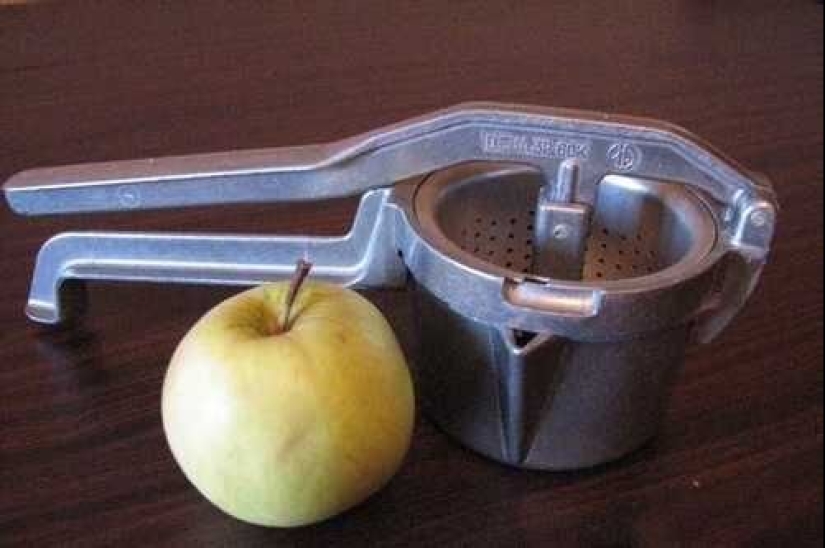
Manual Soviet juicer from the mid-20th century.
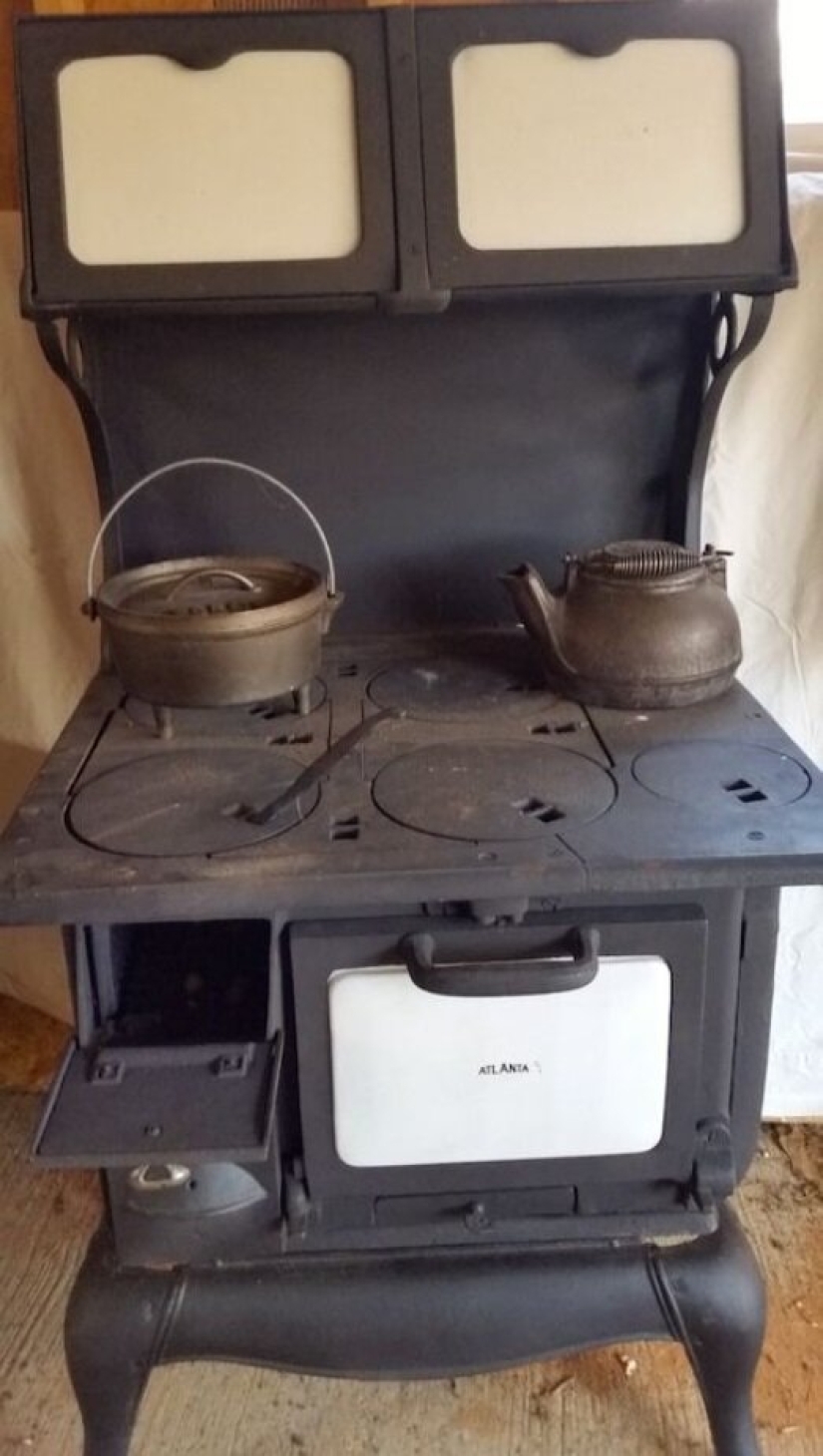
Multi-burner kitchen stove with wood-burning oven. End of the 19th century.
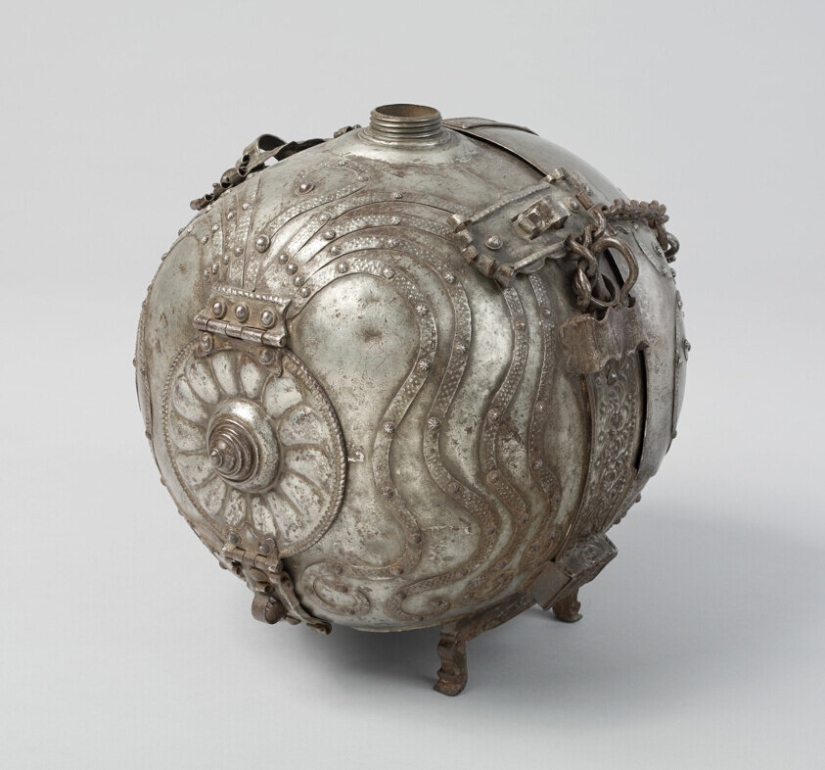
Saxon camping heater from the 17th century. One part of it was filled with water, and the other with hot coals.
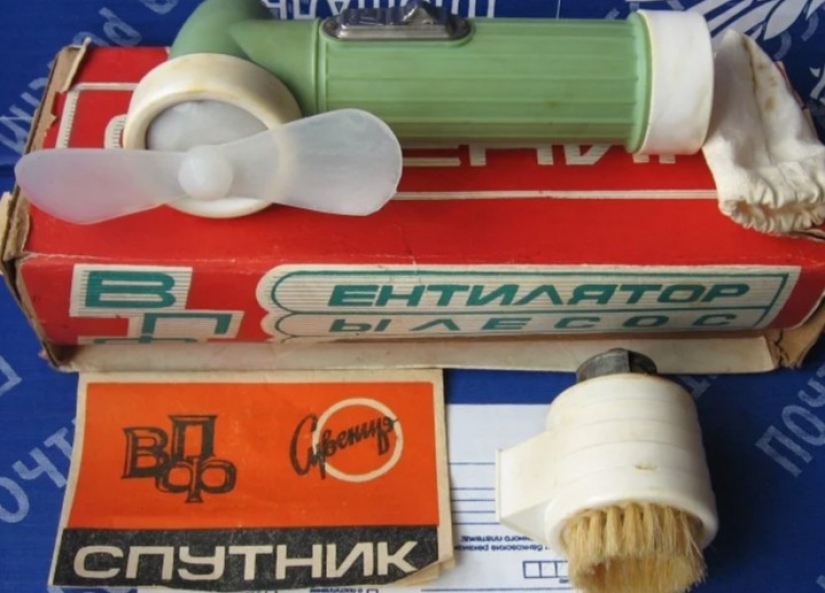
Multifunctional device from the 1960s. Combines a vacuum cleaner, fan and flashlight.
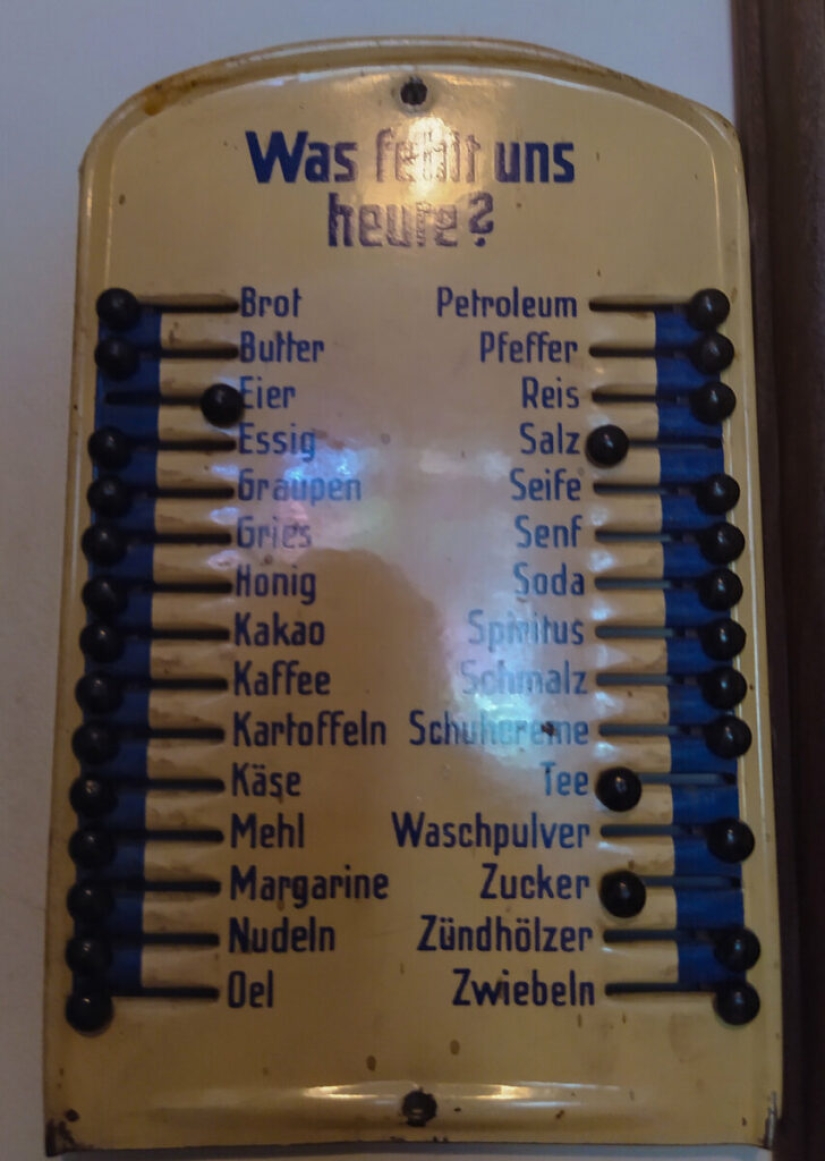
German kitchen organizer from the 20s of the last century. He reminded the housewife about which products were running out.
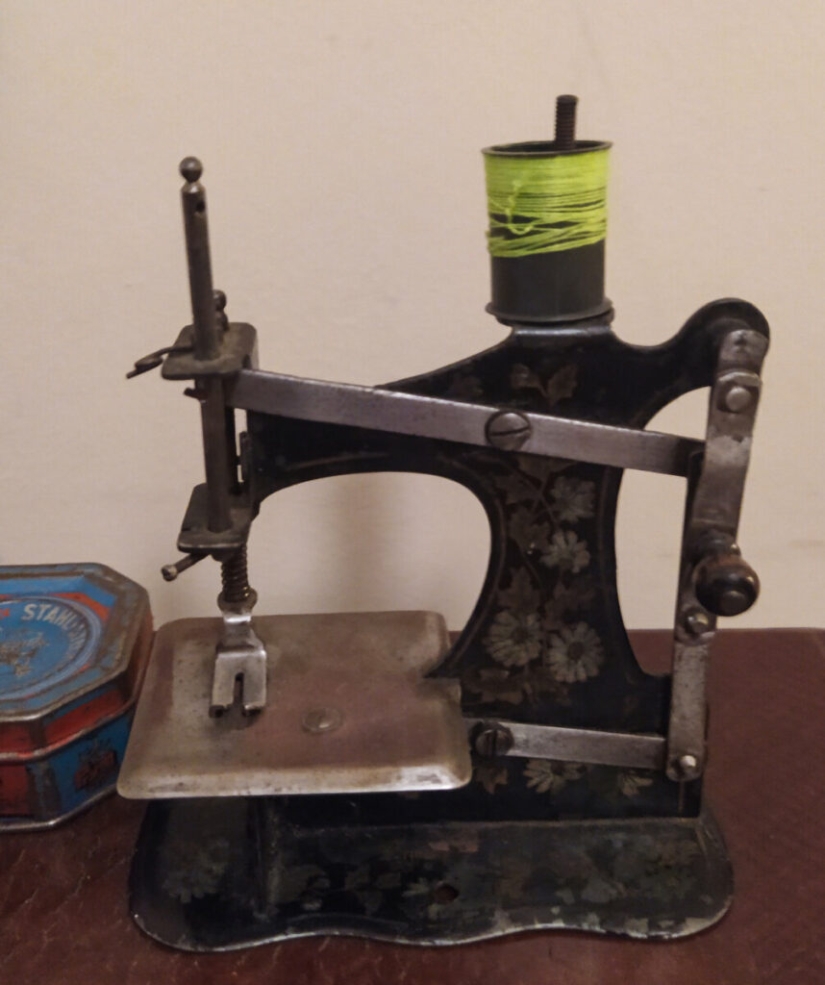
Travel sewing machine from the late 19th century.

Swedish dollhouse from 1916.
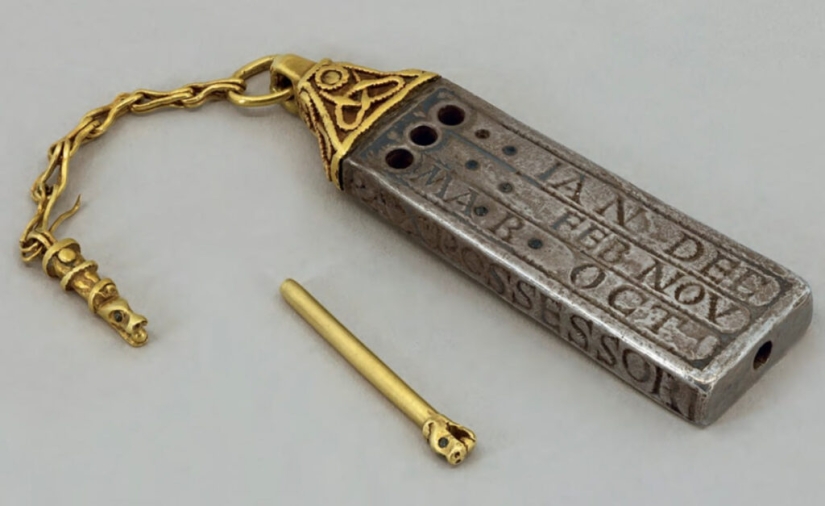
The first pocket watch known to science is from the 10th century. The names of the months are written on both sides of the object. By inserting a pin opposite the current one and orienting the watch relative to the sun, you can find out the time of day by the length of the shadow.

Antique nut cracker.
Once upon a time, even well-known household appliances looked strange.
Recent articles

It's high time to admit that this whole hipster idea has gone too far. The concept has become so popular that even restaurants have ...

There is a perception that people only use 10% of their brain potential. But the heroes of our review, apparently, found a way to ...

New Year's is a time to surprise and delight loved ones not only with gifts but also with a unique presentation of the holiday ...